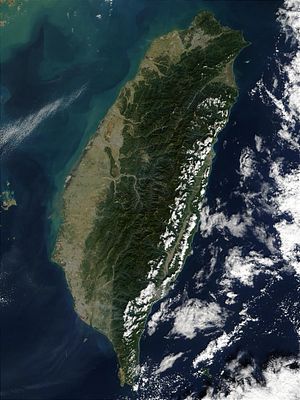The Diplomat author Mercy Kuo regularly engages subject-matter experts, policy practitioners, and strategic thinkers across the globe for their diverse insights into U.S. Asia policy. This conversation with Dr. Benjamin Tsai – senior associate at TD International (TDI) and former U.S. government intelligence officer on Northeast Asia and the Middle East – is the 334th in “The Trans-Pacific View Insight Series.”
Evaluate media messaging from Beijing and Taipei during and after U.S. House Speaker Nancy Pelosi’s visit to Taiwan in August.
Taipei’s messaging has consistently focused on the need for U.S. and international support in the face of Chinese aggression and the fact that Taiwan is a democracy. Protecting a thriving democracy against a much larger, authoritarian bully is a theme that resonates with the American people, and Pelosi emphasized this in her op-ed piece on Taiwan.
Beijing issued a Foreign Ministry statement on August 2, which is only used when it is very concerned. The last time Beijing issued such a statement on Taiwan was in 1995, when Lee Teng-hui visited the U.S. From Beijing’s perspective, the Pelosi visit was part of a series of actions that signaled warming ties between Taipei and Washington and what it calls the “hollowing out” of the One China policy. In light of the war in Ukraine, China will be very sensitive to signs of Taiwan becoming part of – even informally – a regional security alliance led by the U.S. It is also clear that the PLA plays a prominent public role on Taiwan and foreign policy, directly communicating with the public through a release of videos and public statements.
At the same time, Beijing is showing restraint. For example, Beijing has not cancelled talks on trade, which is the most important issue in the U.S.-China relationship. To date, there has been no statement from Xi or other top leaders (other than Foreign Minister Wang Yi) on the Pelosi visit. On the PLA side, the statements have come from the ministry spokesperson or the Eastern Theater Command. China did not recall its ambassador, as it did in 1995.
Compare and contrast the public relations approaches between Qin Gang, China’s ambassador to the U.S., and Bi-khim Hsiao, Taiwan’s representative to the United States.
Both Qin and Hsiao make good use of the media (and social media) to communicate with the American people. It is difficult to compare them because Qin has a much tougher job – he has to defend an authoritarian country that is threating to use force against a thriving democracy. Taiwan’s narrative is straightforward: We are a democracy under threat, and Hsiao conveys this message persuasively.
In contrast, Qin uses terms like the “three communiques” and “six assurances,” which mean nothing unless you are a foreign policy expert. Maybe that’s the target audience versus American voters. His early August opinion piece in the Washington Post starts with a history lesson. It is very difficult to explain the concept of One China to non-experts without going into the weeds and engaging in some suspension of reality. Taiwan does not have this problem; its message is direct and visceral.
Analyze China and Taiwan’s infowar strategy as cross-strait tensions escalate.
China does not want to use force before the PLA is ready, so Beijing’s short-term focus will be on influencing the 2024 presidential and legislative elections in Taiwan. Its preferred outcome is a KMT president and majority. However, Beijing’s past efforts to influence electoral outcomes have backfired. For Taiwan, it will continue to hammer home the message that China is threating to destroy a vibrant democracy that happens to produce over 90 percent of the world’s most advanced semiconductors.
How are Beijing and Taipei harnessing nationalism in this infowar?
Nationalism is a double-edged sword for Beijing, after telling its population for decades that it will not tolerate any form of Taiwan independence and that the PLA can easily conquer Taiwan. We saw with Pelosi’s visit that many of the die-hard nationalist netizens thought the government’s response was too weak.
Taiwanese identity – as something distinct from China – has been on the rise in recent years in part due to increased Chinese aggression and the crackdown in Hong Kong. According to a well-respected survey, 62 percent identified themselves as solely Taiwanese in December 2021, up from 54 percent in December 2018. Thirty-two percent identified as both Taiwanese and Chinese in December 2021, down from 38 percent in December 2018. This means that political unification with China is increasingly a non-starter for Taiwanese voters.
Assess the effectiveness of the U.S. and regional allies in managing the China-Taiwan infowar.
There is a real risk of an information war escalating into a shooting war. The U.S. and its allies can help prevent this. China has learned that images of PLA simulating an attack on Taiwan send a strong message. There is a performative aspect, and the same goes with congressional visits to Taiwan. The problem is people soon learn to live with these military exercises, and they think China is just bluffing. To send a stronger message, the PLA will have to keep ratcheting up their wargames.
Washington and its allies should not get caught up in the ever-escalating war of posturing. We need to engage China through as many channels as possible to prevent an unintentional war. We need to ask how much we really gain from some of these more performative acts that are intended mostly for the domestic U.S. audience.

































